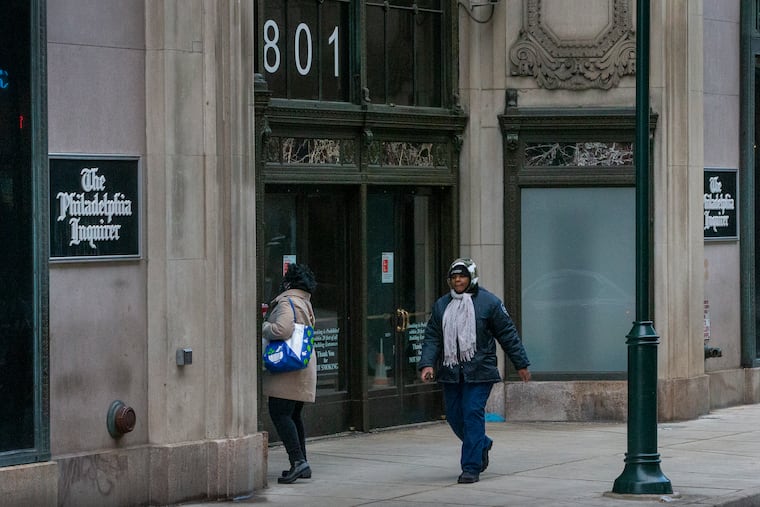The Inquirer needs a racism intervention | Opinion
The Inquirer’s leadership must work with diverse media advocates to undo the racially biased culture, low retention of employees of color, and white-focused coverage problems revealed in recent audit.

Another year, another reminder that racism exists in Philadelphia’s largest newsroom.
This time, Black and brown community members are hit with glaring updated figures following The Inquirer’s Diversity and Inclusion Audit. The report — written by Temple University’s Klein College of Media & Communication under the leadership of the late former National Association of Black Journalists president Bryan Monroe and Temple faculty member Andrea Wenzel — confirmed that the paper has a racially biased culture, low retention of employees of color, and white-focused editorial practices.
Some of the biggest disappointments in the 118-page report were that only 26.4% of Inquirer stories include a Black source or subject (compared with 58.8% for white subjects and sources), with 53% of those stories being about sports. The audit also noted that only 13.6% of Inquirer staff are Black (compared with 77.3% white), with the cochairs of the audit stating that “the Inquirer tends to cover white people the most” and “white reporters tend to write about white people even more.”
» READ MORE: Inquirer has overwhelmingly white newsroom and its coverage underrepresents people of color, report says
In other words, water is wet and just like the snow, The Inquirer remains as white as ever.
At this point, two things can happen. Our city’s publication of record can retreat back to more broken promises and Band-Aids on a damaged artery (like their stuffy 2019 Diversity & Inclusion Awards Gala at the Crystal Tea Room, which felt as though community members of color were being tokenized by an institution that barely recognized them any other time), or they can seriously engage with diverse media advocacy organizations who understand diversity, equity, and inclusion better than they do.
As the president of the Philadelphia Association of Black Journalists, the nation’s oldest Black journalism association, I’m calling on them to finally commit to doing the latter.
Philadelphia is not only home to PABJ, but also local chapters of the Asian American Journalists Association (AAJA) and National Association of Hispanic Journalists (NAHJ). Our nonprofit organizations have been committed to advocating for journalists of color in our respective communities for years. Right now, there’s been little to no commitment from The Inquirer on collaborative action to addressing these issues with these advocacy groups, and that needs to change. I know, because in my roles on PABJ, I’ve sat in several meetings where The Inquirer’s mostly white leadership detailed diversity ideas, such as engaging with Temple’s journalism department on the audit and hiring an outside consultant, that were executed publicly. They were talking to us, instead of talking with us. We were not included in the planning or implementation of any efforts to repair the wounds caused by The Inquirer’s practices, but rather told after final decisions were made. This felt like a slap in the face for our nearly 50-year-old institution, which has a long history of being at the beginning stages of media diversity action plans.
» READ MORE: The full Inquirer Diversity and Inclusion Audit Report
In other words, there’s “nothing about us, without us.” The Inquirer’s leadership must work with diverse media advocates and allow a true intervention to take place. This looks like organizations such as PABJ, AAJA, and NAHJ being prioritized in the advising, implementation, and execution of any diversity action plan the publication plans to produce. We can no longer await another disappointing report that has nothing but shortcomings and missed opportunities. If The Inquirer’s diversity action plan for the community does not include the community at the forefront of implementation, it will continue to fail.
The Inquirer has failed at diversity, equity, and inclusion because it appears to be too stubborn to hear fair criticism and make tough decisions for the betterment of the community and its staff. Community media leaders should no longer be expected to just sit back and watch the publication’s leaders give another sorry excuse for why they’re not doing better.
Those days are far behind us. We are now demanding a seat at the table to actually dismantle the current racist practices that continue to harm us all.
Ernest Owens, editor at large at Philadelphia Magazine, is the president of the Philadelphia Association of Black Journalists.